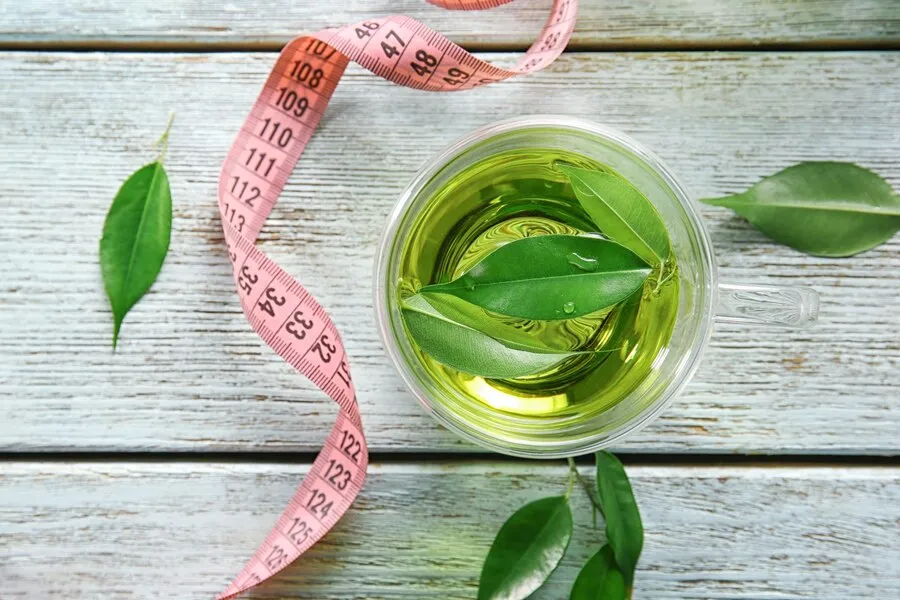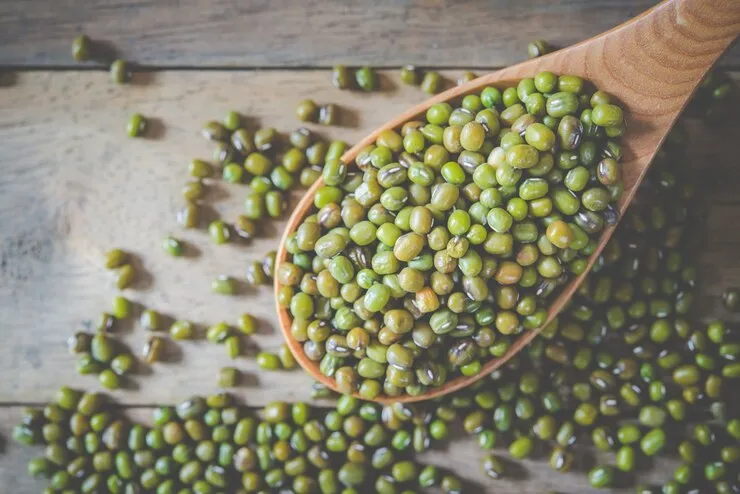13 Herbal Tea Benefits You Should Try to Get Healthier
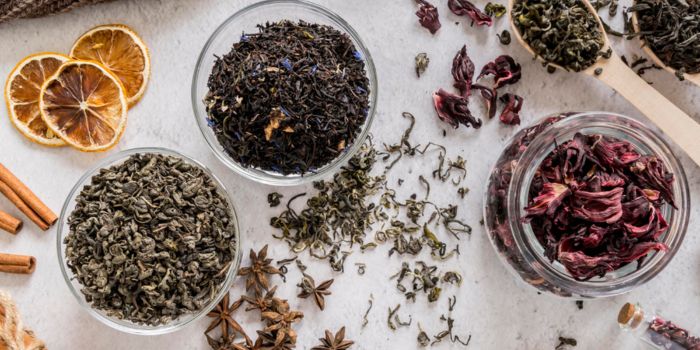
Herbal tea benefits — Herbal tea, often referred to as tisane, is a beverage made by infusing various parts of plants, excluding traditional tea leaves from the Camellia sinensis plant.
Instead of using tea leaves, herbal teas are crafted from a wide array of dried herbs, flowers, fruits, seeds, or roots, resulting in a diverse range of flavors and potential health benefits.
Notably, herbal teas are naturally caffeine-free, making them a popular choice for individuals seeking a warm and comforting beverage without the stimulating effects of traditional tea or coffee.
What are the benefits of herbal tea?
Herbal teas encompass a spectrum of health benefits, ranging from soothing digestive ailments and promoting relaxation to providing a rich source of antioxidants that combat oxidative stress.
Chamomile and peppermint teas, for instance, contribute to digestive well-being and headache relief, respectively, while ginger tea is celebrated for its anti-inflammatory properties.
Rooibos and hibiscus teas are recognized for their antioxidant content, promoting heart health and reducing blood pressure.
The adaptogenic qualities of herbs like ashwagandha make herbal teas a popular choice for stress management.
Overall, herbal teas not only offer a diverse array of flavors but also serve as a holistic approach to wellness, catering to various health needs with their natural and beneficial compounds.
What is the best time to drink herbal tea?
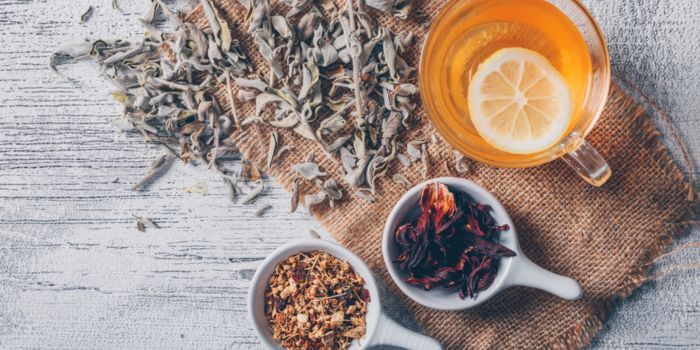
The ideal time to enjoy herbal tea largely depends on personal preferences and the specific herbal blend. However, some general recommendations can guide optimal consumption.
Chamomile and peppermint teas, known for their calming and digestive properties, are excellent choices in the evening before bedtime.
Ginger or peppermint tea can be invigorating and beneficial in the morning or after meals to aid digestion. Herbal teas with calming effects, such as lavender or chamomile, are suitable for moments of stress or before bedtime.
Ultimately, the best time to drink herbal tea is when it aligns with individual goals—whether it’s to energize in the morning, unwind in the evening, or support digestion after meals.
13 Types of Herbal Teas
1. Chamomile Tea (Matricaria chamomilla)
Chamomile is a flowering plant that belongs to the Asteraceae family. It is native to Europe and Western Asia but is now cultivated in various parts of the world.
As for its flavor, chamomile tea has a mild, floral, and slightly sweet taste. It is often described as soothing, making it a popular choice for relaxation.
Chamomile is renowned for its calming effects. It contains apigenin, which may bind to specific receptors in the brain, promoting relaxation and potentially helping with insomnia or improving sleep quality.
Chamomile tea may have an anxiolytic (anxiety-reducing) effect, potentially helping individuals manage stress and anxiety.
To prepare chamomile tea, steep a chamomile tea bag or dried chamomile flowers in hot water for about 5-10 minutes. Adjust the steeping time based on your preference for a stronger or milder flavor.
2. Peppermint Tea (Mentha piperita)
Peppermint tea, derived from the leaves of Mentha piperita, is a popular herbal infusion known for its versatile health benefits.
Its menthol content not only imparts a refreshing flavor but also provides relief from digestive discomfort, alleviating symptoms such as bloating and indigestion.
Additionally, peppermint tea has been associated with headache relief, owing to its muscle relaxant properties. The tea’s antimicrobial characteristics contribute to oral health, combating bad breath and bacteria.
Its consumption is also linked to stress reduction and improved mental focus. Overall, peppermint tea stands out for its ability to soothe the digestive system, relieve tension, and offer a pleasant, invigorating experience.
3. Ginger Tea (Zingiber officinale)
Ginger tea, derived from the root of Zingiber officinale, is renowned for its multifaceted health benefits.
Rich in bioactive compounds, it possesses potent anti-inflammatory and antioxidant properties, making it a formidable ally in promoting overall well-being.
Consuming ginger tea has been associated with alleviating nausea, aiding digestion by reducing gastrointestinal irritation, and mitigating symptoms of motion sickness.
Additionally, its immune-boosting attributes, attributed to the presence of gingerol, may contribute to warding off infections.
The tea’s thermogenic nature can also aid in weight management, while its warming effect serves as a comforting remedy for respiratory issues.
With a robust flavor profile, ginger tea not only delights the palate but offers a holistic approach to health and vitality.
4. Lemon Balm Tea (Melissa officinalis)
Lemon balm tea is celebrated for its ability to induce a sense of relaxation, making it a popular choice to alleviate stress, anxiety, and even promote restful sleep.
Its gentle lemony flavor not only provides a delightful taste but also contributes to its digestive benefits, aiding in soothing discomfort and easing digestive issues.
With its mild sedative effects, lemon tea has proven effective in promoting a tranquil mind, making it a valuable addition to one’s daily routine for overall well-being.
5. Hibiscus Tea (Hibiscus sabdariffa)
Packed with antioxidants, it contributes to cardiovascular well-being by potentially lowering blood pressure and promoting healthy cholesterol levels.
Its robust flavonoids and anthocyanins not only offer anti-inflammatory properties but also fortify the immune system. Beyond health perks, the tea’s tangy, floral notes make it a refreshing and caffeine-free alternative.
Embraced globally, hibiscus tea stands out not only for its delightful taste but also for its potential to enhance overall health and vitality.
6. Turmeric Tea (Curcuma longa)
Renowned for its potent anti-inflammatory properties, turmeric tea aids in reducing inflammation and joint pain, making it a popular choice for individuals with arthritis or inflammatory conditions.
Its immune-boosting potential, coupled with antioxidant effects, contributes to overall well-being. Known to support digestive health, turmeric tea may alleviate symptoms of indigestion and bloating.
Furthermore, studies suggest its positive impact on mood and cognitive function, making it a promising adjunct in managing conditions like depression and cognitive decline.
Regular consumption of turmeric tea not only imparts a warm, earthy flavor but also harnesses a myriad of health benefits, making it a valuable addition to one’s daily wellness routine.
7. Nettle Tea (Urtica dioica)
Rich in vitamins, minerals, and antioxidants, nettle tea is known for its potential to alleviate allergy symptoms and reduce inflammation.
It is particularly recognized for its high content of iron and can contribute to overall nutritional well-being. The tea’s diuretic properties may aid in detoxification and support kidney function.
Additionally, nettle tea has been associated with joint pain relief and can be a valuable addition to those seeking natural remedies for arthritis.
Its earthy, slightly sweet flavor makes it a pleasant and healthful choice, providing a nourishing and revitalizing beverage option.
8. Rooibos Tea (Aspalathus linearis)
Rooibos tea is a caffeine-free herbal infusion celebrated for its unique sweet and nutty flavor profile. Packed with antioxidants such as aspalathin and nothofagin, Rooibos tea supports overall health by combating oxidative stress and inflammation.
Known to promote heart health, it may assist in lowering blood pressure and cholesterol levels. Additionally, Rooibos tea is rich in minerals like iron, potassium, and zinc, contributing to improved bone health and immune system support.
Its soothing nature extends to digestive benefits, aiding in the relief of indigestion and stomach cramps.
The absence of caffeine makes Rooibos tea a suitable option for those seeking a calming beverage without the stimulating effects of traditional teas, while its delightful taste makes it a popular and versatile choice for both hot and cold consumption.
9. Licorice Root Tea (Glycyrrhiza glabra)
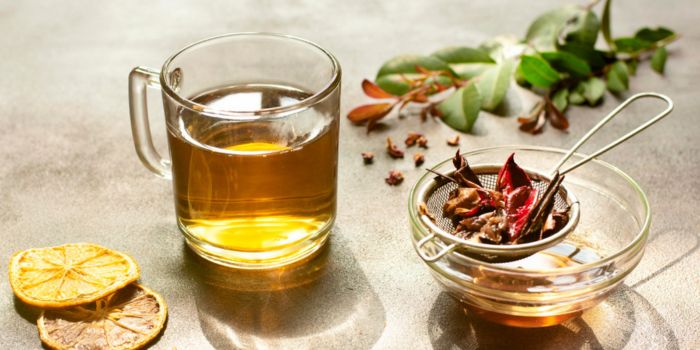
Renowned for its sweet taste and distinct flavor, this herbal infusion is not only a soothing beverage but also a remedy with notable therapeutic properties.
Licorice root contains compounds with anti-inflammatory and antioxidant effects, contributing to its ability to alleviate respiratory discomfort and soothe the throat.
Furthermore, this tea aids in digestion by promoting a healthy balance of gut bacteria and providing relief from indigestion. Its potential to support adrenal health and regulate cortisol levels makes it an adaptogenic option for stress management.
However, it’s crucial to consume licorice root tea in moderation, as excessive intake of glycyrrhizin, a compound found in licorice, may lead to adverse effects such as hypertension.
Consulting with a healthcare professional is advisable, particularly for individuals with existing health conditions or those who are pregnant.
10. Dandelion Tea (Taraxacum officinale)
Dandelion tea, derived from the Taraxacum officinale plant, is an herbal infusion celebrated for its multifaceted health benefits.
Recognized for its liver-cleansing properties, it supports liver health by promoting the elimination of toxins and aiding digestion.
Beyond its detoxifying attributes, dandelion tea possesses diuretic properties, contributing to kidney function and potentially alleviating water retention.
Rich in vitamins and minerals, including vitamins A, C, and potassium, it also offers immune-boosting and anti-inflammatory effects.
Additionally, dandelion tea has been associated with promoting healthy skin and may aid in weight loss by supporting metabolic processes.
This caffeine-free herbal option not only delivers a unique earthy flavor but also serves as a holistic addition to one’s wellness routine, with its array of potential health-enhancing properties.
11. Rosehip Tea (Rosa canina)
Rosehip tea, derived from the fruit of the wild rose plant (Rosa canina), is a nutritional powerhouse known for its rich content of vitamin C and potent antioxidants.
With a delightful, slightly tart flavor, this herbal infusion not only supports immune health by providing a significant dose of vitamin C but also exhibits anti-inflammatory properties.
The antioxidants in rosehip tea may contribute to reducing oxidative stress in the body, potentially benefiting skin health and combating signs of aging.
Additionally, the tea is associated with anti-arthritis effects, and its consumption may aid in joint health due to the presence of anti-inflammatory compounds.
Rosehip tea serves as a flavorful and health-promoting beverage, offering a delicious way to enhance overall well-being.
12. Ashwagandha Tea (Withania somnifera)
This tea is renowned for its stress-reducing properties and ability to promote overall well-being. As an adaptogen, Ashwagandha helps the body adapt to stressors, mitigating the impact of chronic stress on the adrenal glands.
Consuming Ashwagandha tea may contribute to increased energy levels, improved concentration, and enhanced resilience to stress.
Additionally, it is thought to have immune-boosting qualities, making it a valuable addition to one’s wellness routine. As with any herbal remedy, individuals should exercise caution, especially if on medications or pregnant, and seek advice from a healthcare professional.
13. Mint Tea (Various Mentha species)
Renowned for its ability to aid digestion, mint tea can alleviate symptoms of irritable bowel syndrome (IBS) and soothe an upset stomach.
Its natural menthol content not only provides a cool, soothing sensation but also helps relieve headaches and congestion.
Beyond its digestive perks, mint tea has been associated with potential antispasmodic effects, making it a calming choice for individuals experiencing muscle discomfort.
With its versatility and delightful flavor, mint tea stands out as a versatile herbal option, offering both a pleasant sensory experience and potential wellness benefits.
So, which tea has the most health benefits?
It’s challenging to pinpoint a single tea with the most health benefits, as different teas offer various advantages.
However, green tea is often considered one of the healthiest due to its high concentration of antioxidants, particularly catechins such as epigallocatechin gallate (EGCG).
These antioxidants have been associated with numerous health benefits, including potential improvements in heart health, reduced risk of certain cancers, and enhanced metabolic function.
Other teas, such as herbal teas like chamomile, peppermint, and ginger, also offer unique health benefits. For example, chamomile is known for its calming properties, peppermint can aid digestion, and ginger tea has anti-inflammatory effects.
Doing business in Herbal Tea at home can make big profits!
Want to try your luck in the world of the healthy drink business? Immediately make the product with your brand! You can entrust it to Putra Farma Yogyakarta as an experienced and highly credible instant beverage product contract manufacturer since 2000. Our location is in Indonesia, precisely in Yogyakarta. In addition, we also accept orders to be shipped worldwide.
With our services, you can make your own branded instant beverage products without having to think about high capital to build your factory. We provide any beverage powder products from various raw materials such as vegan collagen, salmon, or adjust to your request.
For product legality issues, you don’t have to worry! Because we guarantee that our products use the best quality raw materials that are legally certified and have food testing from the laboratory. We also carry out production with GMP, and HACCP standards, and double-checking.
Get many benefits by working with us, including product consulting; free to create a brand name; unique product formulations; free product samples; flexible MoUs; free product packaging design; free to choose the form of product packaging; free revision of product samples until suitable; long shelf life; cost price negotiation; product legality registration; etc.
Instagram @putrafarmayogyakarta
Facebook Putra Farma Yogyakarta
LinkedIn Putra Farma Yogyakarta
Twitter @putrafarmayk

